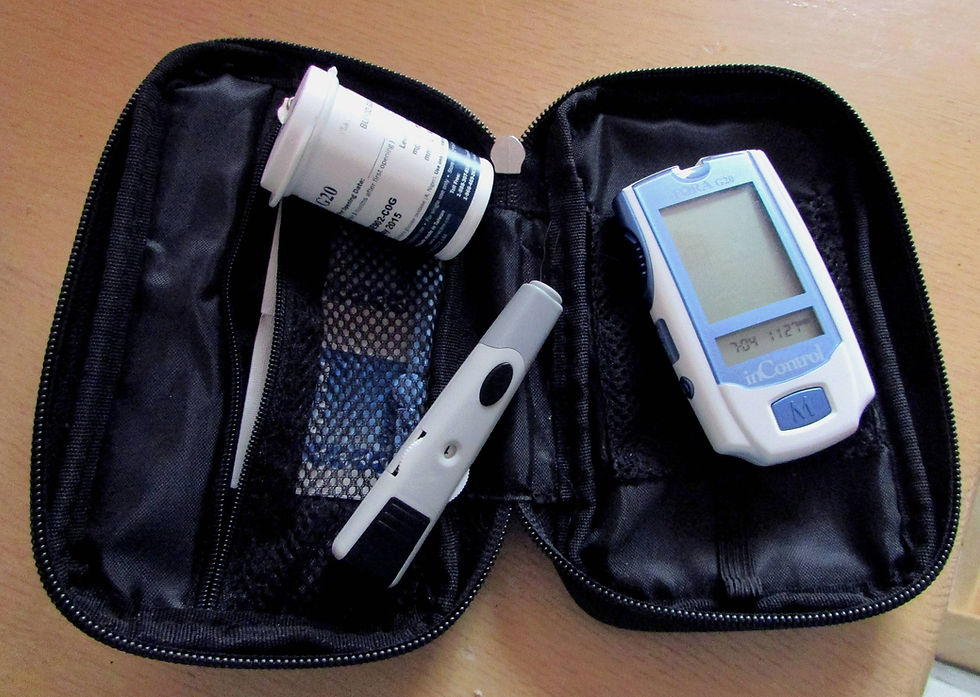How Herbal Medicine Supports Women Through Menopause vs. Modern HRT
- Amira Rashed

- Mar 23
- 3 min read

Menopause is a natural transition in a woman’s life, but it often comes with uncomfortable symptoms like hot flashes, mood swings, bone loss, and hormonal imbalances. Modern medicine typically offers hormone replacement therapy (HRT) as the main solution, but many women seek natural alternatives to manage their symptoms safely and effectively. Herbal medicine, diet, lifestyle changes, and proper supplementation can offer powerful support without the risks associated with synthetic hormones.
1. Supporting Hormonal Balance Naturally
Instead of relying on HRT, herbal medicine uses phytoestrogens and hormone-regulating plants to help the body balance its own hormones. Phytoestrogens are plant compounds that mimic estrogen but work gently, helping to regulate levels without overwhelming the body.
Herbs that support hormonal balance:
Shatavari (Asparagus racemosus): A natural adaptogen that helps regulate estrogen and supports the reproductive system.
Red Clover (Trifolium pratense): Rich in phytoestrogens, it helps reduce hot flashes and supports bone health.
Maca (Lepidium meyenii): A powerful adaptogen that balances hormones and boosts energy.
Black Cohosh (Actaea racemosa): Helps reduce hot flashes, night sweats, and mood swings.
Unlike HRT, which introduces synthetic hormones that may increase the risk of blood clots, breast cancer, or heart disease in some women, these herbs work with the body’s natural processes, making them a gentler alternative.
2. Using Diet to Support Hormones
Food plays a major role in hormone regulation. A well-balanced diet can support estrogen metabolism, reduce inflammation, and improve overall well-being.
Increase phytoestrogen-rich foods: Flaxseeds, sesame seeds, tofu, and legumes help provide mild estrogenic effects.
Support liver health: The liver metabolizes hormones, so eating cruciferous vegetables like broccoli and cabbage can help balance estrogen levels.
Include healthy fats: Omega-3s from fish, nuts, and seeds reduce inflammation and support hormone production.
Avoid processed sugars and refined carbs: These can cause insulin spikes, which disrupt hormone balance.
3. Lifestyle Changes to Balance Hormones
Exercise:
Strength training helps maintain muscle mass and bone density, which naturally decline during menopause.
Yoga and Pilates improve flexibility, reduce stress, and support hormone balance.
Stress Management:
Meditation and deep breathing lower cortisol levels, which can otherwise disrupt estrogen and progesterone balance.
Getting enough sleep is essential, as poor sleep increases stress hormones and worsens menopause symptoms.
4. Supporting Bone Health Naturally
One major concern during menopause is bone loss (osteoporosis) due to decreasing estrogen levels. Instead of relying solely on pharmaceutical drugs, we can support bone health through natural approaches:
Weight-bearing exercises like walking, resistance training, and yoga strengthen bones.
Vitamin D & Calcium supplementation:
Vitamin D should be taken with a fatty meal to enhance absorption.
Magnesium & K2 help direct calcium to the bones rather than the arteries.
5. How to Take Vitamin D Correctly
Many women take vitamin D but don’t absorb it properly. Here’s how to optimize it:
Take Vitamin D3 with a meal that contains healthy fats (e.g., avocado, olive oil, nuts).
Pair it with Vitamin K2 to ensure calcium is deposited in bones instead of soft tissues.
Get regular sunlight exposure for natural vitamin D synthesis.
Conclusion: A Holistic Approach to Menopause
While HRT is one approach, it’s not the only option. Herbal medicine, diet, lifestyle changes, and proper supplementation can help women navigate menopause naturally and safely. By focusing on phytoestrogens, hormone-regulating herbs, stress management, and bone health, women can restore balance and feel their best during this phase of life—without relying on synthetic hormones.





Comments